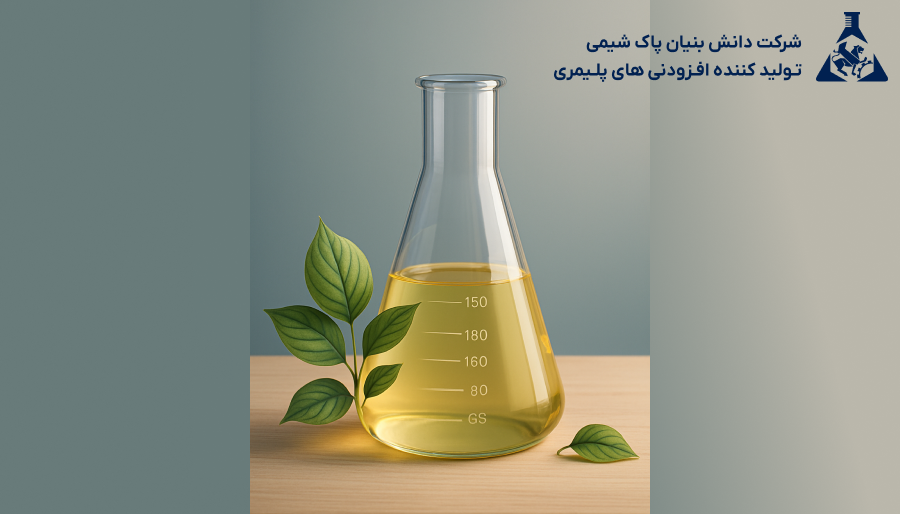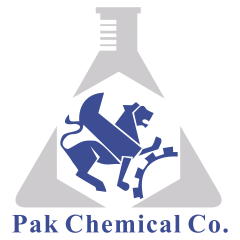Epoxidized Soybean Oil (ESBO), also known by the trade name PESBO67, is one of the green and environmentally friendly additives that has found a special place in various industries, especially PVC, food packaging, paints and lubricants. This product is obtained from the epoxidation process of soybean oil, which changes its chemical and physical properties and increases its strength, safety and reactivity.
How is Epoxy Soybean Oil produced?
Soybean oil is a natural vegetable oil extracted from soybeans. In the epoxidation process, the double bonds in the fatty acids of this oil are converted into epoxide groups using peroxides or oxidizing agents. This change increases the thermal and chemical stability and improves the performance of this oil in industrial applications. This feature has made PESBO67 known as a plasticizer and thermal stabilizer in the polymer industry, especially PVC.
Why is ESBO (PESBO67) used in PVC?
PVC is hard and brittle without suitable additives. Adding plasticizers such as PESBO67 causes:
- Increase flexibility
- Improve heat resistance
- Prevent degradation caused by UV light
- Increase the lifespan of PVC products
- These features have made ESBO widely used in the production of:
- PVC pipes
- UPVC profiles and doors and windows
- Insulated cables and wires
- PVC flooring
- PVC packaging films.
Key Features of Epoxy Soybean Oil PESBO67
- Eco-friendly and biodegradable
- Non-toxic and safe for food and medical industries
- High thermal stability and UV resistance
- High chemical reactivity to create strong bonds with polymers
- Suitable alternative to traditional plasticizers such as DOP
Comparison of Epoxy Soybean Oil (ESBO) with common plasticizers (such as DOP)
- Thermal stability: ESBO has higher resistance than DOP at high temperatures.
- Chemical safety: DOP has limitations in the food industry, while ESBO is non-toxic and suitable for food packaging.
- Environmental compatibility: ESBO is biodegradable, but DOP is a chemical compound and is not biodegradable in nature.
Industrial applications of Epoxy Soybean Oil PESBO67
- Food packaging industries
Because of its safety and non-toxicity, ESBO is used in the production of PVC films used in food packaging.
- Printing inks and paints
ESBO improves pigment dispersion and increases adhesion in the production of paints and inks.
- Industrial lubricants
It is used as a green and sustainable oil in industrial lubricants that has similar performance to traditional lubricants, but leaves less environmental impact.
- Resins and adhesives
The presence of epoxide groups improves flexibility and adhesion in adhesive and resin formulations.
- Agricultural and pharmaceutical applications
Due to its biological compatibility, it is used in some agricultural products (such as seed coatings) and pharmaceutical formulations.
- PESBO67 Epoxy Soybean Oil Specification Table (Text) Physical and Chemical Properties:
Color (Gardner): Max. 3
- Viscosity at 25°C: 300–450 mPa·s
- Epoxy Value (Oxirane Value): Min. 6.7%
- Thermal Stability: High
- Density: 0.99 g/cm³
- Flash Point: > 200°C
Why is it important to choose Epoxy Soybean Oil?
- Produce safer and higher quality products.
- Meet environmental standards requirements.
- Reduce long-term maintenance costs of PVC products.
- Enter the food and medical markets that are more sensitive.
Future of ESBO (PESBO67) in Industries
With the limited use of traditional plasticizers such as DOP and the increasing demand for sustainable products, ESBO can capture a larger share of the global market. It is predicted that the use of ESBO will increase significantly in the coatings, packaging and medical device industries. Epoxy soybean oil PESBO67 is not only a powerful plasticizer and thermal stabilizer, but also has a bright future in various industries due to its green and non-toxic properties. If you are looking to increase quality, environmental friendliness and enter sensitive markets (food and medical), PESBO67 is an ideal choice.

Read more:
